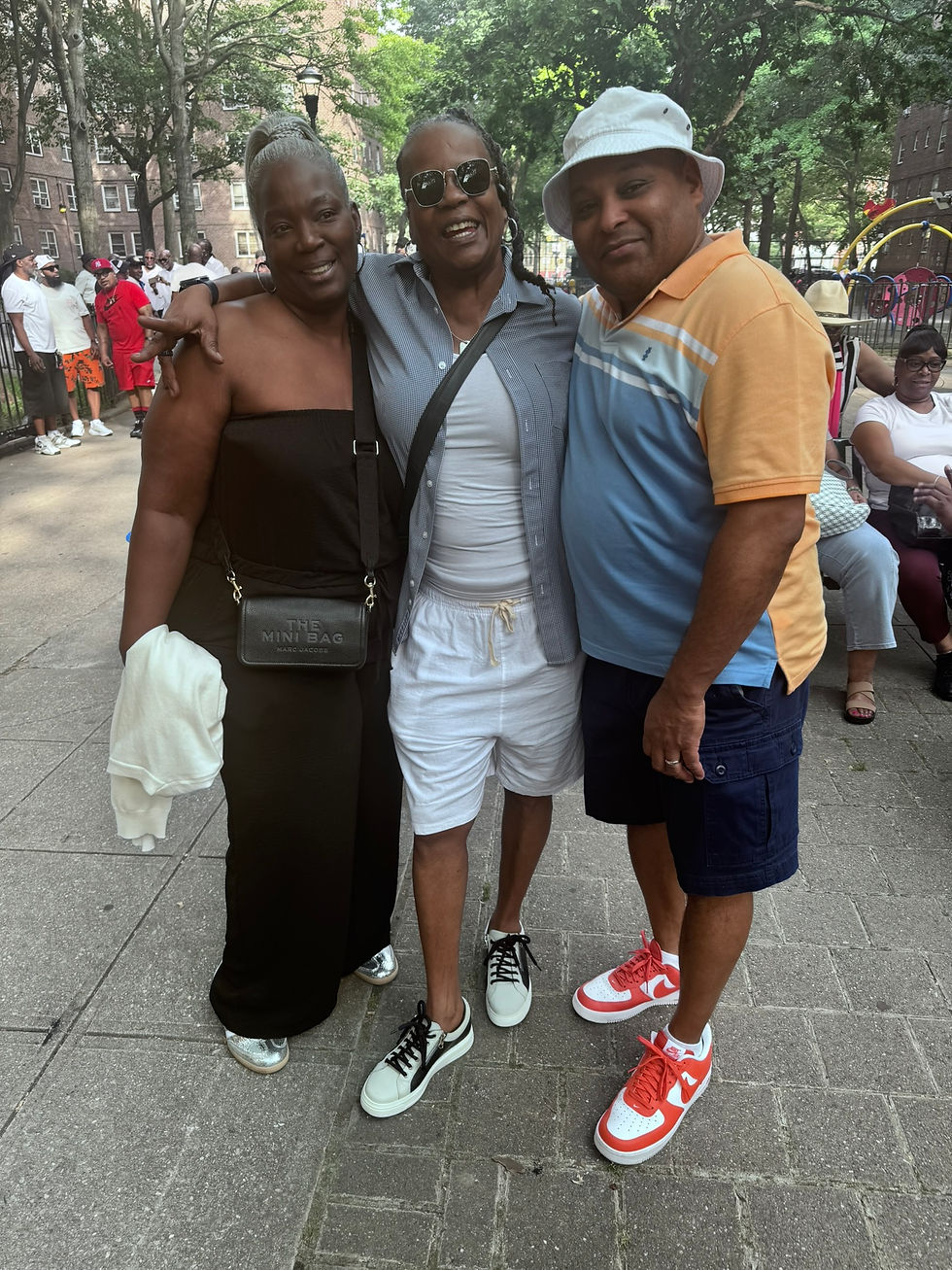The Curious Case of Home: Why Do People Stay or Leave Where They Grew Up - Part 1
- Coach Danyetta
- Aug 23, 2025
- 3 min read

I’ve always been fascinated by what makes a person decide to stay in their childhood neighborhood where they grew up or venture out to explore new places. Grappling with the choice between staying in our homes of origin or venturing out to new places is a long-standing decision point for many of us. Some find immense comfort in the familiar—the streets they grew up on, the neighbors who watched them grow; those who ‘hold their stories,’ and the traditions that shaped them.
Others feel the pull of exploration, seeking new opportunities, different ways of living, and alternative perspectives. Those who leave may be driven by ambition, curiosity, or necessity. Neither choice is inherently right or wrong and both reflect deeply personal values and desires.
When I visited my family in my old neighborhood in Harlem, New York, I heard someone call out to me, “Is that Tricia?!” It was Vernon, an old friend from my neighborhood. We hugged and I introduced him to my family who was visiting with me. He went on to tell my daughter that, “We were sandbox friends.”
It was a conversation I had not had the opportunity to think about again until recently. It was nice to be welcomed by someone who held part of my childhood story who wasn’t a family member. Vernon has one daughter who just graduated from high school and is heading to a college in Atlanta. I left my St. Nick Harlem neighborhood to pursue my higher education in another state; and I never had a desire to return to New York City to live.

Those who stay often do so for strong community ties, family obligations, or a sense of belonging. For example, in small towns and some small cities, generations may remain rooted, preserving local customs and maintaining close-knit relationships. In Cincinnati, it’s common for adult children to live around the corner or next to their parents. There is security in being known—where shopkeepers remember your name, and neighbors become like extended family because you’ve watched each other’s children grow up together, attend the same social outlets together.
On the other hand, those who leave may be driven by ambition, curiosity, or necessity. Immigrants move for better opportunities, artists relocate for inspiration, and adventurers seek the thrill of the unknown. A person from a rural village might move to a bustling city, while someone from an urban center might seek solitude in the countryside. Each journey reshapes identity and broadens understanding.
Although, I grew up in Harlem, NYC and have lived in a number of settings: a metropolitan city, here in Cincinnati, a farming town near Omaha, Nebraska, and a suburban area just outside Nashville, and downtown Nashville right after graduating from college. With each move it represented a new resettling, making new friends and building community based on my neighborhood and my interests.
For many others, staying in the same place was just as appealing. And it’s not just in Harlem, many of us want to stay where our roots run deep and where we are known as a member of our family. Some of us stay close to home or move back when we are raising our children so we can be close to our parents, aunts, uncles, cousins as our children group up. We want them to grow up around their relatives which brings an extra layer of being known and loved. My spouse’s family lives in Kenya and there is always a large delegation of cousins, aunts, uncles, nieces, and nephews not to mention the family friends who are so much a part of the extended family. It’s also a collective, feminine society versus our American individualist, masculine society. We see how doing things together is second nature whereas in our home in Cincinnati, the nearest family member is several hours away.
Questions for Discussion:
1. What do you think people gain—or lose—by staying in their hometown versus moving away?
2. Have you ever felt the tension between the comfort of familiarity and the excitement of the unknown?
3. How does being "known" in a community differ from being a newcomer? Which do you prefer, and why?






Comments